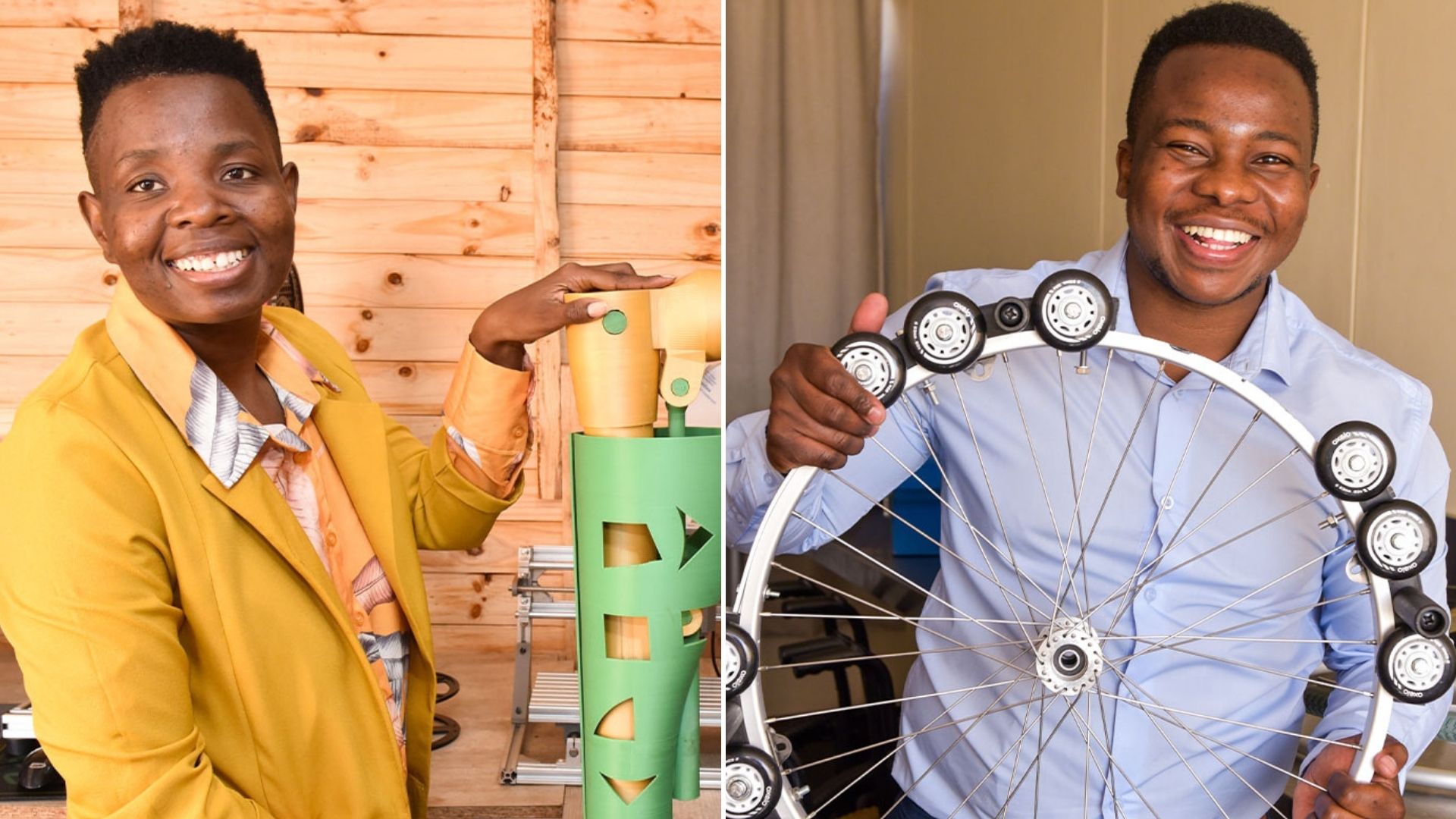.jpg)
On World Bee Day, we’re reminded that the survival of bees is intrinsically linked to the survival of people. Bees pollinate over a third of the crops we consume, playing a vital role in the health of ecosystems and global food security. In Africa, where agriculture is often small-scale, subsistence-based, and deeply reliant on the natural environment, bees are even more essential.
For Sipamandla Manqele and Mmabatho Morudi, founders of Local Village Africa and entrepreneurs in the FURTHER community, this is about more than protecting pollinators, it’s about transforming lives. Their journey began with a dual realisation: bee populations were in rapid decline, threatening both biodiversity and food security, while rural poverty in Africa was deepening, even though rural landscapes are ideal for beekeeping. This intersection of environmental crisis and social inequality inspired a bold idea: To create a mutually beneficial relationship between bees, rural communities, and markets.
Through their pioneering apiculture and agriculture model, Local Village Africa trains people living in rural areas in sustainable beekeeping and conservation, empowering them to become stewards of nature. At the same time, they create socio-economic value by purchasing high-quality, ethically harvested honey – a commodity in increasingly short supply. Their work not only improves biodiversity and supports pollinator populations; it also creates inclusive income opportunities, particularly for people with disabilities, and helps build more resilient, self-sufficient rural communities across the continent.
Bee Fences and Biodiversity
The initiative isn’t just about honey. Local Village Africa also champions nature-based solutions like “beeline fences” – rows of hives that help deter crop-raiding elephants. These fences, an invention by Dr Lucy King in Kenya, serve a dual purpose: Reducing human-wildlife conflict while encouraging pollinator presence in farming areas.
Over time, they've seen growing awareness and interest in biodiversity in the communities they serve. “People are starting to see bees less as a threat, and more as an asset,” says Sipamandla. “There’s more environmental stewardship happening at a grassroots level.”
Yet, the team is not immune to the mounting pressures of climate change. Shifting rainfall and flowering patterns are reducing forage for bees, placing additional stress on already fragile populations. This underscores the urgency of the work – to protect not just bees, but also the delicate systems they sustain.
From Honey to Hope: Creating Lasting Impact
Local Village Africa’s efforts go far beyond conservation – they contribute to food system resilience and economic sustainability. By introducing regenerative agriculture practices alongside beekeeping, they help restore degraded habitats and provide alternative income streams for rural communities.
Education is a core part of their work. Community-based training programmes teach both technical beekeeping skills and broader lessons in pollination, food security, and environmental care. “Each jar of our raw Noju honey tells a story,” says the team. “It connects the consumer directly to the landscape, the people, and the sustainable practices behind the product.”
And the benefits are cyclical. As communities earn more, they reinvest in their land, avoid harmful practices, and become stewards of the environment. It's a model that transforms livelihoods while healing ecosystems.
Want to Help Bees? Start Small, Think Big
World Bee Day is a call to action. Whether you're an individual, a corporation, or a landowner, Local Village Africa offers ways to support pollinators while creating social impact.
- Individuals can plant bee-friendly herbs and flowers, avoid pesticides, install bee water stations, and purchase ethically sourced honey, like Noju.
- Corporations can fund the establishment of bee sanctuaries in rural communities, directly supporting conservation and livelihoods.
- Game reserves, farms, and conservancies can convert unused buffer zones into pollinator corridors, reducing conflict with wildlife while enhancing biodiversity.
A Model for Africa and the World
Through innovation, inclusion, and ecological awareness, Local Village Africa is proving that a small insect can fuel big change. Their work reminds us that conservation and economic development are not competing priorities – they are partners.
This World Bee Day, let’s celebrate not only the bees, but the entrepreneurs, communities, and changemakers working to protect them and, in doing so, protect us all.




